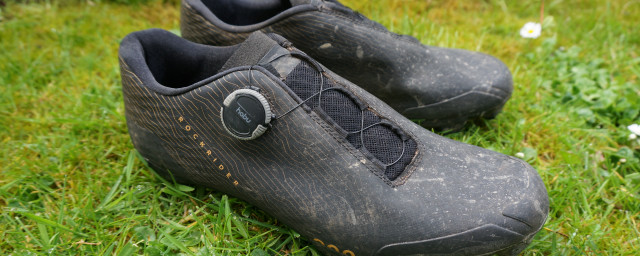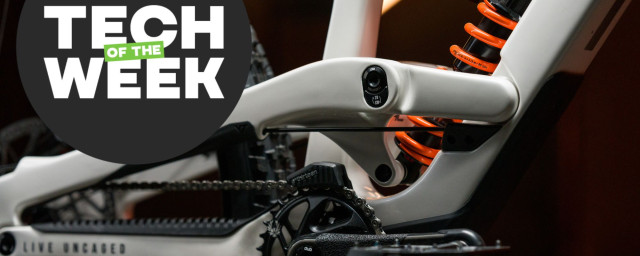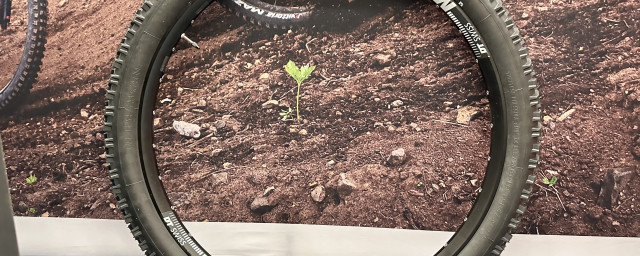Industry Insider: MTB career insights with Julia Hobson

When something life-changing happens, what follows isn't particularly straightforward. For Julia Hobson, the moment of change happened following the tragic loss of her husband. From life as a physio, everything changed. Today she finds herself running her own business and juggling the challenges that come with that.
- Mountain bike Icons - the greatest riders of all time
- MTB enduro racing for beginners - how to prepare for your first race
However, from tragedy comes transformation. When life falls apart around you, you will find your feet when you're ready. Never expecting to run her own business, today, Julia runs Endless Trails MTB – a very successful guiding company. Here's her story about how it all started.
In your own words, who are you and what do you do?
I'm Julia Hobson, a mountain bike guide and business owner based in West Yorkshire.
What is your job?
I own and run a guiding company, Endless Trails MTB, offering all-mountain/backcountry guided mountain bike holidays in the UK and European Alps. I'm the company director, logistics coordinator, trip planner, accounts manager, advertising and PR lead, secretary, website and online content creator, and chief guide. I honestly don’t feel like any of these things, but as anyone who runs a small business knows, you kind of have to be a jack of all trades!
How did you get into what you do?
I worked as a freelance guide in the UK and Europe since 2012, initially working for other mountain bike tour companies, before setting up Endless Trails in 2017. I guess I was looking for ways for guiding to become a sustainable year-round job and longer-term income provider rather than living seasonally as a freelancer, plus I fancied the challenge of more organisation and putting my touches on trips.
How long have you been working in the bike industry?
Since 2012. Guiding wasn't something I ever set out to do or imagined I'd be doing but, after my husband tragically passed away in an accident in 2011, life took a very different turn and I found my way into guiding as something to do while I rebuilt my life and figured out what to do with myself after my world had collapsed around me. I discovered I loved guiding and found ways to keep doing it, building my reputation over many years, before looking at ways to make it a longer-term sustainable career.
I used to guide during the summers and then spend winter travelling and working as a ski instructor. I've done all sorts of jobs in addition to this to make ends meet, COVID-19 vaccinator, Christmas tree seller, bike builder. I'm a firm believer that if you want something enough and are prepared to work hard to make it happen, you can do anything.
How have things changed since you started?
COVID-19 had the biggest impact on the business, coming at a time just after I'd incorporated the company and taken over another guiding company. It was a tough couple of years for anyone working in tourism but things have bounced back in the last two years thankfully. The cost of living crisis and poor Pound/Euro exchange rates have made our Alps trips more expensive for UK customers, so we see increasingly more guests from North America and Europe.
We run fewer UK day trips now than when I initially started the business, as there is much less of a market for these now that GPS devices are so easy to use and many people can guide themselves on classic trails.
Our tours are mostly multi-day package tours, taking care of accommodation, transport, food, and guiding for customers so that they can just relax and enjoy riding in a new place and not have to stress about logistics.
From a personal point of view there's a lot more to do on the business management side of things now I'm running a company and not just guiding. I'm still learning lots with this and it's a good challenge. The reward for six months a year spent behind a computer is six months of guiding people in the mountains and sharing experiences I've created for them.
Is there anything you wish you could change about your role/job?
I resent all the office time over the winter but the business can’t run itself and the fun bits (such as the trips) couldn't happen without this. Missing out on events and fun stuff happening with friends and family during busy summers is often hard but I have to remind myself that I’m lucky to be able to do something I love as work and spend time in such incredible places.
Weekends are always busy so there's often little time to spend with those friends and family who have a more traditional work schedule, especially from April to October.
What does the average week look like?
It depends on whether it’s winter or summer.
Winter is all day behind the computer planning and running the business, selling the following season's trips, communicating with customers and service providers, and sorting out admin. Still, there's also a chance for some much-needed downtime. If the weather is looking good and I need to get outside and ride to clear my head, I will do so, and I’ll work around this by starting earlier in the day generally.
Summer is pretty full on every day. Guided trips run from Saturday night to Friday night each week for 12-15 weeks each summer so there’s less than a day off a week (usually spent doing laundry, shopping for the following week, answering emails, and generally trying to stay afloat amidst the chaos!).
A normal day on a trip starts with breakfast with guests from 7:30ish. We’ll then load the van with kit and head off either riding from the hotel or on a shuttle. Lunch is either eaten somewhere on the mountain or at a place where we can meet in the van. We’ll ride until 4.30/5 pm (sometimes later) before making our way to that night’s hotel for post-ride drinks and snacks. If there are mechanical problems to deal with we’ll help people sort those, before a quick shower and then dinner with guests. After dinner is a quick chance to catch up on emails from previous or following week’s guests, sort kit for the following day then get to sleep.
What advice would you give to someone who wants to do your job/what you do?
Spend time gaining qualifications and experience and work as much as you can as a guide so you know you love it and want to focus on it. Many people think guiding is a dream job where you get to ride your bike all day every day and, while it is pretty awesome, you have to remember that while working you’ll be riding for others, not yourself and their safety, needs and enjoyment comes first. You need to be continually cheerful, positive, fun, and able to boost morale, both on the hill and while looking after guests pretty much 24/7, so you need to love people and be happy spending lots of time with them and having little to yourself. Guiding on these trips is so much more than just the time on the bike.
Make sure that you take time to still ride where you are not working too. It’s important to make the distinction so that riding remains something that’s fun as well as what you do at work.
Even if you ultimately want to run a guiding company, it’s worth spending time building up a reputation and establishing yourself as a respected guide first, learning about what people are looking for, what works and doesn’t work on trips and what your selling point as a company might be.
What do you like most about what you do?
Lots of things. The fact that I’ve been able to turn something I love into a job. Being outside on bikes and meeting people from all over the World, brought together to share good times in amazing places. Exploring new trails. Creating trips that people love and will remember for the rest of their lives and seeing them happy and having fun, definitely makes all the hard work behind the scenes worth it.
If you weren’t doing this, you would be?
Well, I used to be a Physio, and while it’s not something I can see myself returning to at the moment, it’ll always be there as an option. If not then definitely something with a good amount of time spent outside or doing something practical and people-facing.
What have been some of the highlights of your career?
Managing to survive the COVID-19 years as a new business in the tourism industry feels like a pretty big achievement.
But mainly just the pride that I started my own company and am continuing to receive lovely feedback from guests, lots of return customers, and the feeling that all this means I’m hopefully doing things well and will continue to do so.
The industry is in a bit of a tough situation in terms of the cost of living. Do you see it recovering any time soon and, if so, what will brands need to do to stay relevant and afloat?
It feels like there will be a strange few years ahead for all of us. If riding the COVID-19 storm has taught me anything it’s that things will improve again even if they get tough for a while, and sometimes you just have to keep faith in that and weather things the best you can!
Moving with the industry and the demands of customers is important, so if that means adding more of a certain kind of trip, or introducing different options, then that’s what I’ll try to do. E-bike holidays for example are becoming more popular, as are options in the UK for multi-day guiding only in an area where people will book their accommodation and transport to keep costs down.
What do you dislike most about the cycling industry?
It’s a shame to still be in the minority as a woman running a business in the bike industry, but as more and more women and girls are getting into cycling and seeing others working in it, hopefully, this will continue to change with time. It’s great that there are increasing numbers of women qualifying as guides and leaders, and with more role models this can only be a positive thing.
It frustrates me that there is still a kind of elitism or arrogance around certain areas of the sport, with one group looking down at another or thinking their genre of the sport means they are “more” of a cyclist than anyone else. At the end of the day, it’s all just bikes and it’s awesome to see people getting outside, happy, and enjoying them in whatever way they choose! More people on all kinds of bikes is a good thing!
How do you keep things balanced when your hobby becomes your job?
I make time for fun riding that’s not work. Planning holidays and rides with friends in different places from those where I work helps to keep fun riding distinguished from work riding.
If I don't ride for months over winter and do other stuff such as climbing, skiing, hiking or running instead, I try not to beat myself up about it too. A break from riding is good for you when you spend so much time doing it, and it’s often what I need to reset and come back in the spring excited to ride again.













